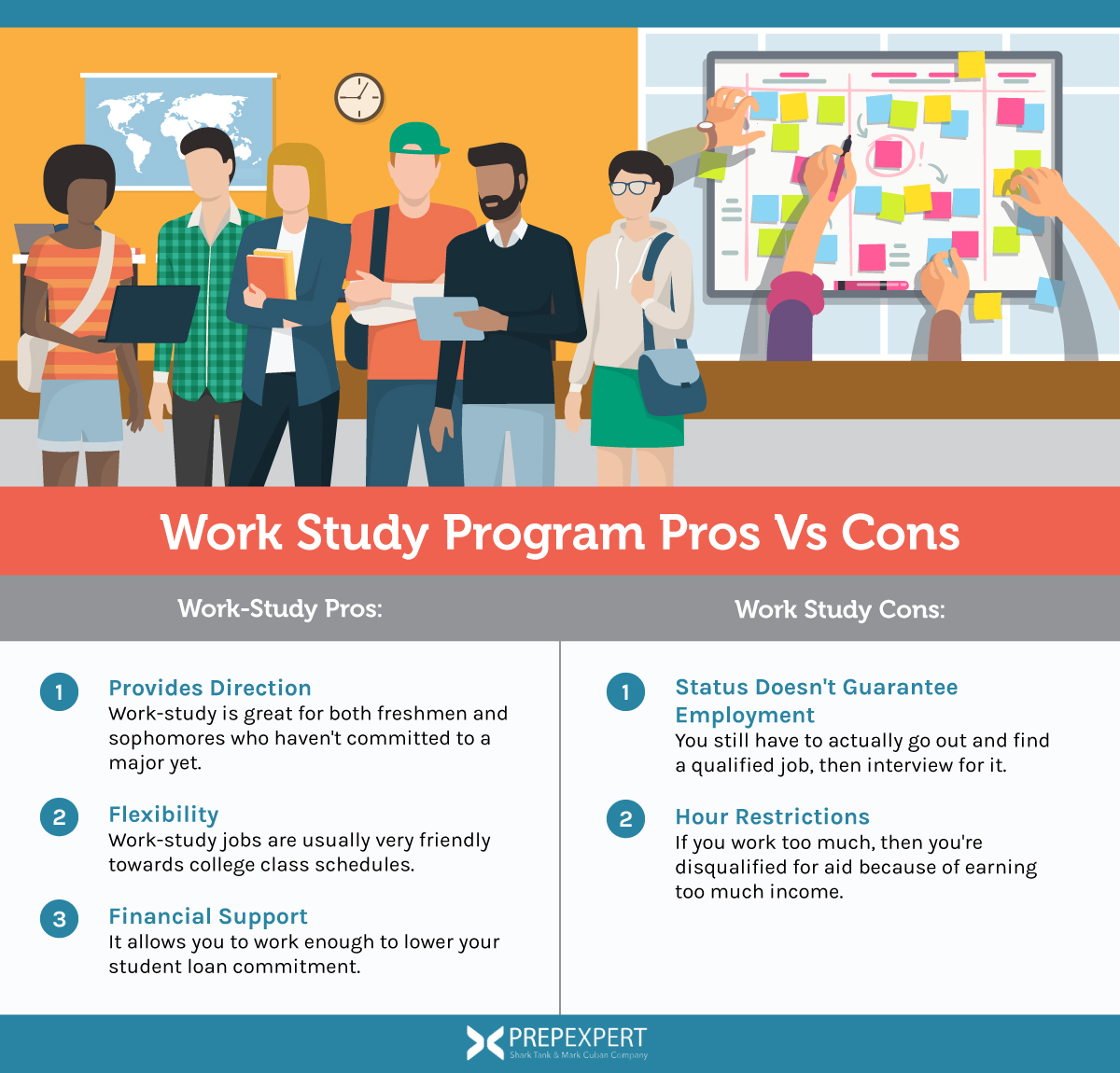Work Study Program Pros Vs Cons
Besides loans and grants, another financial aid option available to students is the work study program. They’re a helpful mix of funds and everyday work.
Before applying for it, here are a few work study program pros vs cons to consider and see if it’s a good fit for you.
Take a second to learn about our ACT prep and SAT prep class options today before reading further.
What Does Work-Study Mean?
Work-Study normally refers to the Federal Work-Study program intended to help pay for college educations.
Students who can demonstrate a clear financial need on their FAFSA application can qualify for the federal program. The program itself awards a specific amount of money to qualified applicants. Once those funds are awarded for a given semester, no one else can qualify.
The money itself is intended to help students pay for school while maintaining jobs that either helps the local community or directly relate to the students’ courses of study. Applicants normally receive a regular paycheck but can also have funds directly applied to their tuition and other fees.
Is Work-Study Like Part-Time Employment?
Work-study jobs are similar to regular part-time jobs but with specific rules attached.
First, regular part-time jobs don’t have to be on campus; they can be held anywhere. However, work-study jobs have two specific criteria:
- First, they are commonly found on the campus itself to qualify.
- However, an outside business can count towards work-study, if it has an agreement with the school itself.
- Second, money earned from work-study hours can’t exceed how much aid was initially awarded.
- The reason being that students will lose financial aid funds if they earn too much money from working alone.
Common work-study jobs include:
- Administrative duties
- Event promotions staff
- Marketing support staff
- Student recreational facilities staff
- Campus guides
- Daycare staff
- Lab Assistants
- Tutors
Work Study Benefits
Work study programs can be just the right aid for students who fit a specific mold:
Provides Direction – Work-study is great for both freshmen and sophomores who haven’t committed to a major yet. Work-study lets those students work jobs that help the community itself while buying time to figure out their final major.
Flexibility – Work-study jobs are usually very friendly towards college class schedules. Whether they’re on-campus jobs or off-campus, employers understand that their workers are students with academic commitments and normally accommodate them easily. There’s less stress with fitting class in with a work-study job than a regular part-time job.,
Financial Support – Work-study is a great form of financial aid. Why? Because it allows you to work enough to lower your student loan commitment. By having to borrow less student loan money, you drive down future loan payments and stress.
Work Study Drawbacks
There are a couple of major drawbacks to consider before diving into work study application:
Status Doesn’t Guarantee Employment – Understand that if you qualify for work-study, you aren’t automatically given a job. You still have to look for an open position, apply for it, and go through the interview process.
Hour Restrictions – Again, you are limited by the number of hours you work in this program. Work-study students have strict time allotments to follow when it comes to hours. If you work too much, then you will be disqualified for aid because you’ve earned too much income.
If you’re an underclassman living on campus with minimal bills, this arrangement is usually okay. However, upperclassmen living off-campus with additional bills will feel the financial strain fast.
For more test strategy, college admissions, and scholarship application tips sign up for our FREE class happening right now!
